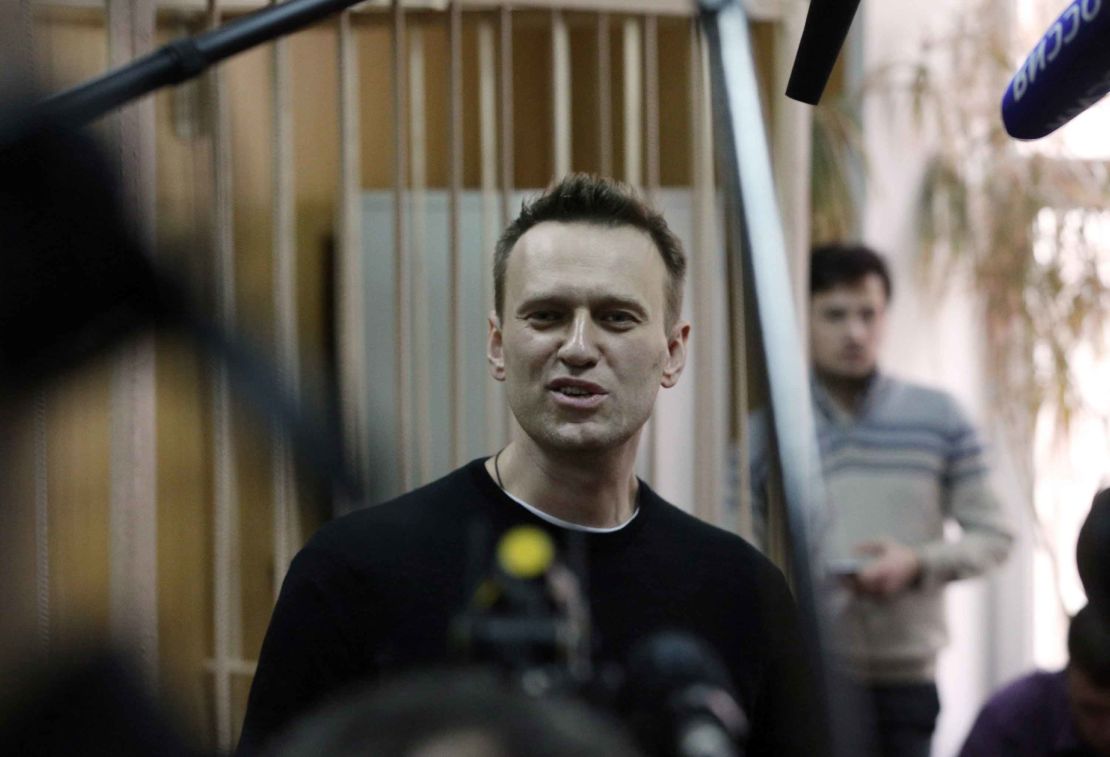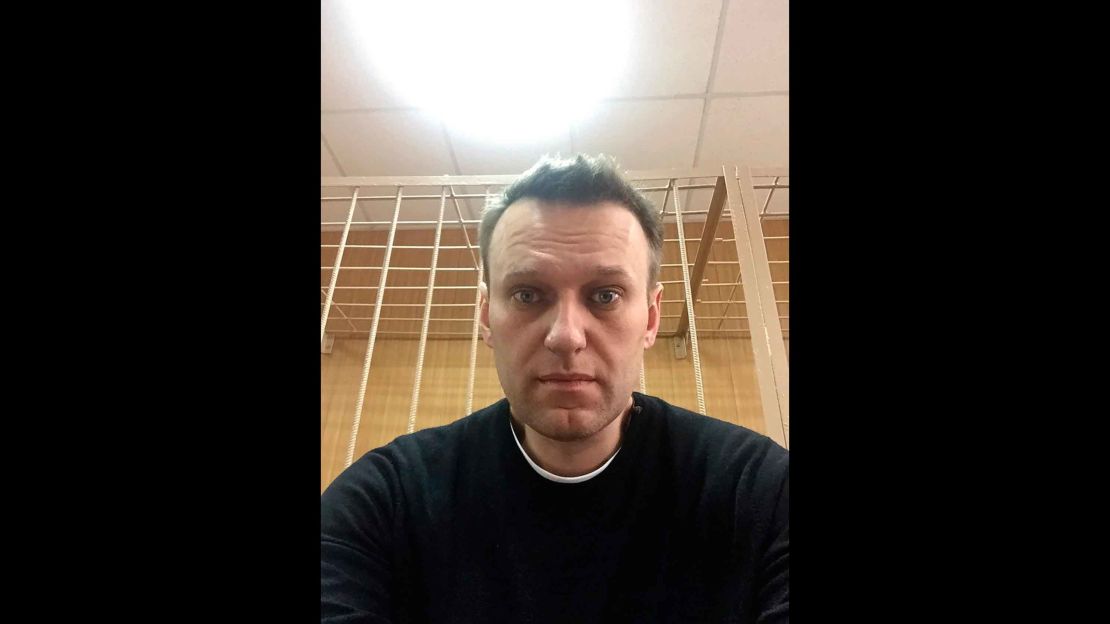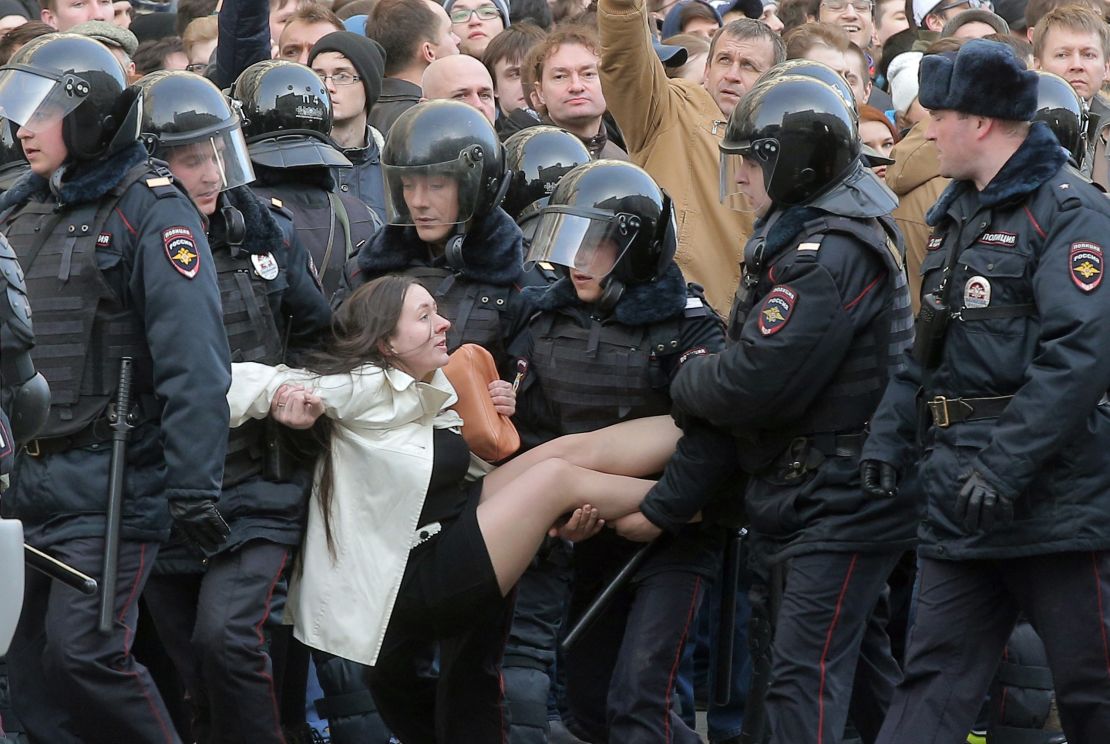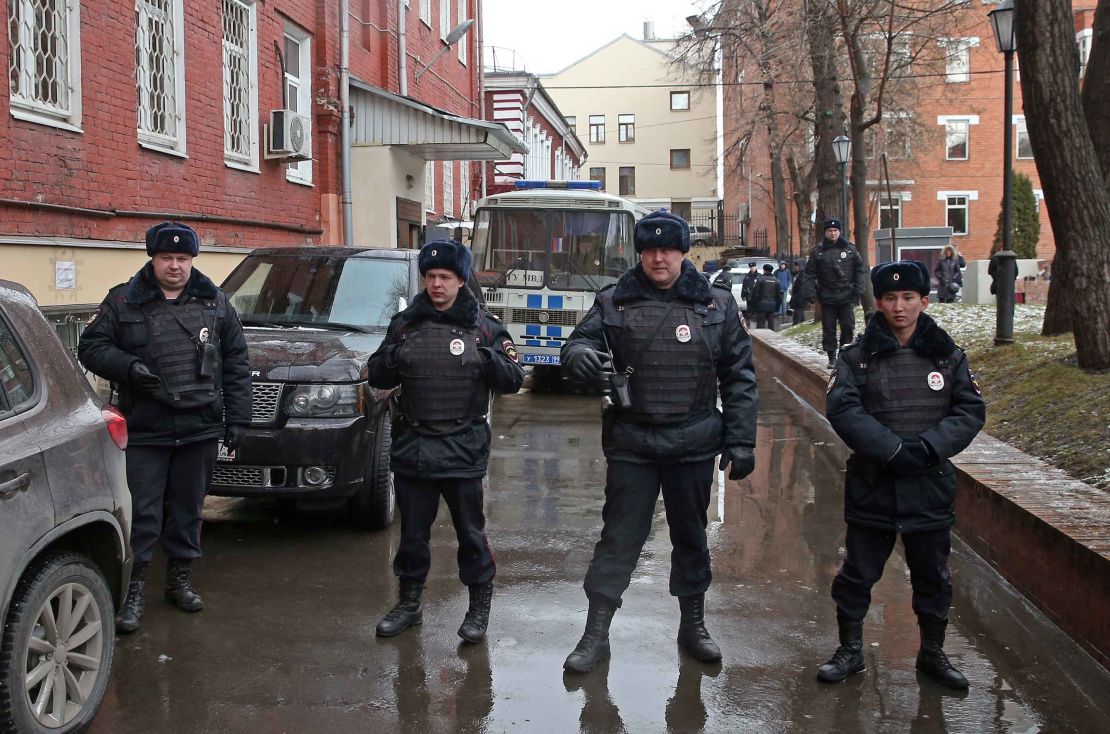Story highlights
Alexey Navalny jailed for 15 days, fined for organizing Moscow protest that attracted thousands
Kremlin condemns country-wide demonstrations and suggests children were paid to attend
Defiant Russian opposition leader Alexey Navalny has been jailed for 15 days over his role in a mass anti-corruption protest in Moscow.
Navalny, who was arrested at Sunday’s demonstration, was sentenced by a court in Moscow on Monday afternoon for disobeying a police officer.
The verdict was tweeted by his press secretary.
He was also fined 20,000 roubles (around $350) after being convicted of organizing the march and disturbing public peace.

Navalny, who rose to prominence during the large-scale anti-government protests in Russia in 2011, plans to run for the Russian presidency in 2018.
However, Russian law prevents convicted criminals from running for public office.
Last month, Navalny was convicted of embezzlement in a retrial of a case that dates back to 2013. He is serving a suspended sentence, but has appealed the verdict.
Russia’s state-run news agency Tass has reported that the suspended sentence could be replaced by a real jail term as a result of Monday’s convictions.
Navalny told reporters in the courtroom that he and his allies would not give up, according to Reuters.
“You can’t detain tens of thousands of people,” he said. “Yesterday we saw the authorities can only go so far.”
Reuters reported that the van Navalny was loaded into after his appearance was surrounded by supporters holding placards reading “we believe” and “we are with you.” Police then detained the group of around 20 young people, according to Reuters.
The protests are part of a campaign called “He is not your Dimon,” referring to Prime Minister Dmitry Medvedev, who Navalny has accused of amassing a global property empire through corrupt means.

In a report published on March 2, Navalny said Medvedev has a portfolio of assets including “huge pieces of land in the most sought-after regions, yachts, apartments in old mansions, agricultural complexes and wineries in Russia and abroad.” Navalny’s report claims this was all purchased through “bribes from oligarchs, and state bank loans.”
Medvedev’s spokeswoman, Natalya Timakova, told state-run news agency RIA Novosti: “It is pointless to comment on the propagandistic outbursts of a convicted opposition figure, who has already announced he is running some kind of election campaign and fighting against the authorities.”

Navalny was among hundreds of people arrested in Moscow for participating in Sunday’s demonstration, which attracted roughly 8,000 people, according to Tass.
Russian human rights group OVD-Info said more than 700 were detained – while Ria Novosti reported 500.
Similar rallies took place in cities across Russia.

Navalny struck a defiant note at the court hearing, suggesting that Medvedev be called as a witness to explain why so many people protested.
While waiting for the case to commence, he tweeted a selfie from court with the words: “Hello everyone from Tver Court. The time will come when we will judge them (but honestly).”
According to Tass, Navalny said in court that he was the organizer of the rally in Moscow, but that it was lawful and consistent with a decision by Russia’s Constitutional Court.
The Kremlin condemned the “illegal” protests Monday and claimed children were offered money in case they were arrested.
At a news conference, Kremlin spokesman Dmitry Peskov told reporters: “There is information that underage participants of the demonstration in Moscow were offered money if they were detained. There is some evidence, if law enforcement considers it necessary, some of the evidence will be released to the public.”
CNN’s Emma Burrows, Antonia Mortensen, Maria Ilyushina and Sebastian Shukla contributed to this report.
